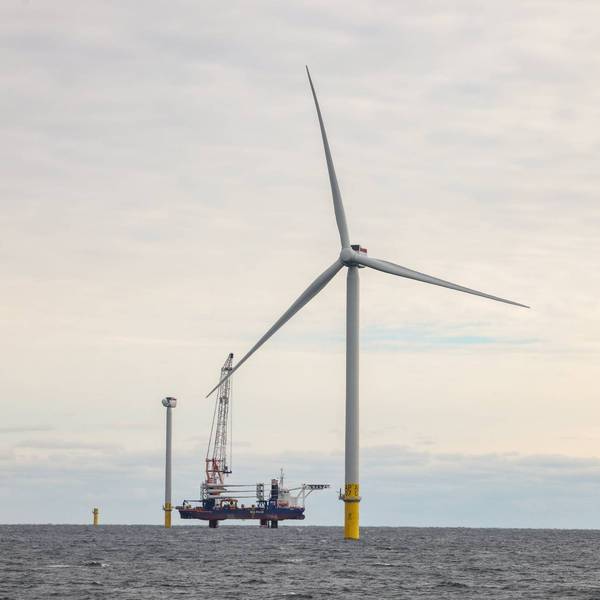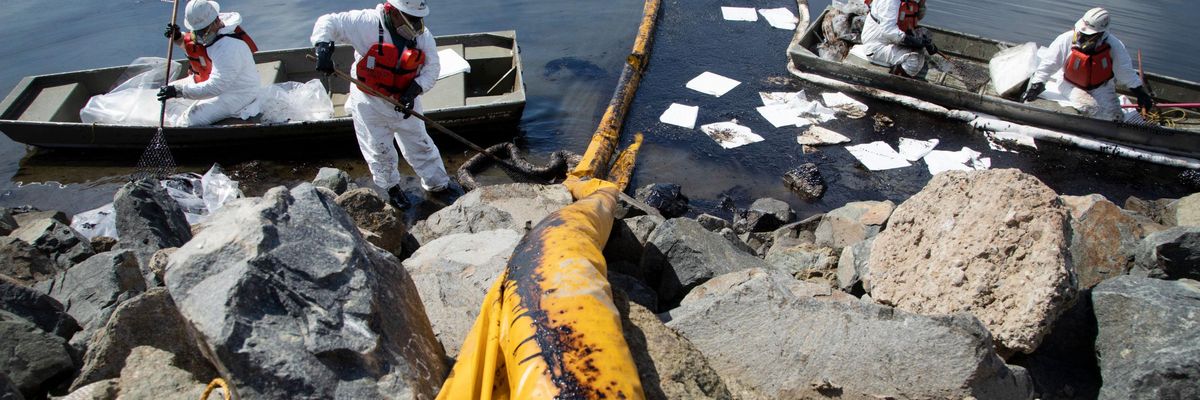The U.S. Supreme Court on Monday rejected a call from several fossil fuel companies to hear their challenge to a lower court ruling handed down a year ago, which prohibited fracking in federal waters off the coast of California.
The 9th U.S. Circuit Court of Appeals last June upheld a decision to bar the issuing of permits for offshore fracking, finding that the U.S. Department of the Interior had violated the Endangered Species Act (ESA), the National Environmental Policy Act, and the Coastal Zone Management Act when it allowed fracking in offshore gas and oil wells in the Pacific.
In the original case, the ruling was the result of three separate lawsuits filed by the Center for Biological Diversity (CBD) and the Wishtoyo Foundation, the Environmental Defense Center (EDC) and Santa Barbara Channelkeeper, and the state of California, challenging the federal government.
Earlier this year, fossil fuel companies ExxonMobil and DCOR, LLC were joined by the American Petroleum Institute in intervening in the case, filing a petition for certiorari in an effort to overturn the 9th Circuit ruling.
Despite the history of the case, the Biden administration opposed the fossil fuel companies' move, with Solicitor General Elizabeth Prelogar writing in a Supreme Court brief last week that "the court of appeals' decision does not warrant this court's review."
"California's amazing coast and vulnerable marine life deserve this victory, which will protect the ecosystem from the many dangers of offshore fracking," said Kristen Monsell, oceans legal director at CBD. "The fracking ban will help prevent more toxic chemicals from poisoning fish, sea otters, and other marine life."
EDC filed its lawsuit after finding in 2014 through several Freedom of Information Act requests that the federal government had issued more than 50 permits without conducting environmental reviews or a public comment process.
CBD published a report that same year showing that offshore fracking near Los Angeles and Santa Barbara posed a serious risk to marine species that could be exposed to toxic chemicals as well as increasing air pollution and the chance of an
earthquake.
At least 10 chemicals that were routinely used in fracking operations off the California coast before the 9th Circuit ruling was handed down were found to be harmful and even deadly to marine animals including sea otters and fish.
"The Supreme Court was right to reject the oil industry's latest attempt to allow fracking and acidizing in our waters with zero meaningful environmental review," said Maggie Hall, senior attorney at EDC, on Monday. "The Santa Barbara Channel is one of the most ecologically rich and important regions in the world. As the climate crisis escalates, ending these destructive extraction practices is a matter of survival—not just for the whales, otters, and other animals in the channel, but for all life on earth."
The decision upheld by the Supreme Court forbids the Interior Department from issuing fracking permits without completing an assessment of the practice's adherence to the ESA and files an environmental impact statement that analyzes "the environmental impacts of extensive offshore fracking" and evaluates alternatives.
"Protecting the health of the ocean is essential to conserving the ecosystem upon which Chumash people have thrived for more than 10,000 years," said Mati Waiya, executive director of the Wishtoyo Foundation, which works to protect Chumash heritage and the environment. "We celebrate the appellate court's decision, which by upholding environmental laws, honors the rights of our people and protects our precious, coastal resources."
Monsell expressed hope that the Supreme Court's decision marks "the beginning of the end of drilling off California's coast" but noted that the Biden administration has welcomed fossil fuel extraction in federal waters, including in the Gulf of Mexico.
"Our ocean won't be truly protected," she said, "until offshore drilling stops once and for all."




